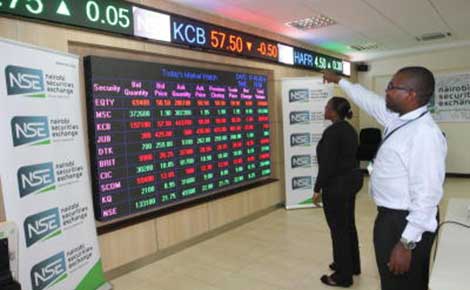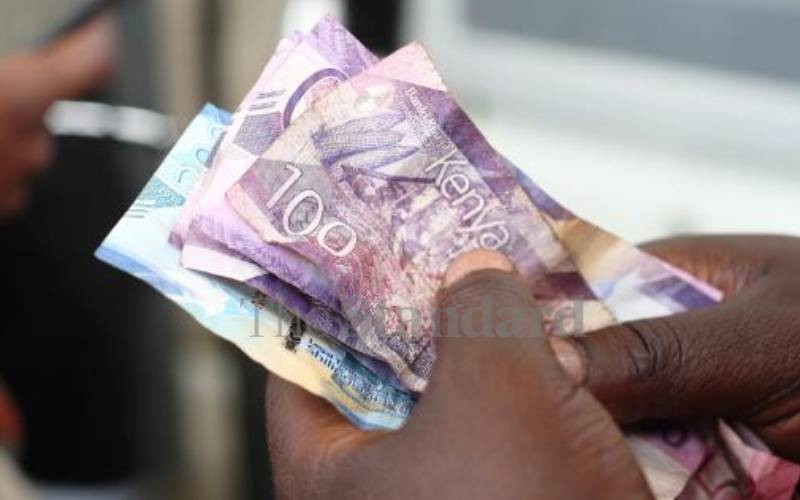 |
|
NSE officials monitor shares trading at the bourse. |
Nairobi; Kenya: The stock market rose slightly buoyed in part by Centum Investments and banking stocks, while the shilling was unchanged.
Centum has been buoyant since announcing in September that it had won a government tender to build a 1,000-MW, coal-fired power plant together with its local partner, traders said.
The firm, whose shares rose 1.5 per cent to close at Sh66, also said it is constructing a large mall in the capital in a country where real estate has been buoyant. The Nairobi Securities Exchange’s main NSE-20 Share Index rose 0.2 per cent or 11.99 points to 5,233.42 points.
Banking stocks were mostly in the black as investors bet they would report strong third-quarter results. Shares in mortgage lender Housing Finance rose 2.7 per cent to Sh47.00 after reporting a 15 per cent jump in pre-tax profit for the first nine months of the year.
“They released their results today (yesterday). So that’s the reason for it going up by such a big margin,” said Agnes Achieng, research analyst at Sterling Investment Bank.
Kenya’s Equity Bank Group reported a 25 per cent jump in pretax profits for the same period after the stock market had closed. On the foreign exchange market, the shilling closed at Sh89.30/40 to the dollar, unchanged from Wednesday. Traders said the sale of a 12-year infrastructure bond worth Sh20 billion was attracting currency inflows that balanced end-month dollar demand from importers. Traders said the shilling will get support from foreign investors buying the bond, and forecast the local currency to trade within a range of Sh88.70 to Sh89.50 range in coming days.
“It’s been relatively flat. I don’t expect any significant move,” said Duncan Kinuthia, head of trading at Commercial Bank of Africa.
The shilling is expected to have a weakening bias once the effect of the bond issue wears off, another trader said. “(The shilling) will weaken after the auction because importers are still in the market,” said National Bank of Kenya trader Ian Kahangara.
The shilling has been under pressure for much of the year largely because of a sharp drop in tourist arrivals, a major source of hard currency, due to a series of Islamist attacks on the coast and elsewhere. A sharp drop in tea earnings owing to a global glut has also dented hard currency inflows. Meanwhile, the weighted average yield on Kenya’s 91-day Treasury bills fell to 8.670 per cent at auction yesterday from 8.706 per cent last week, the central bank said. The bank received bids worth a total Sh458.5 million for the Sh3 billion worth of bills on offer, and accepted the entire amount. --Reuters
 The Standard Group Plc is a
multi-media organization with investments in media platforms spanning newspaper
print operations, television, radio broadcasting, digital and online services. The
Standard Group is recognized as a leading multi-media house in Kenya with a key
influence in matters of national and international interest.
The Standard Group Plc is a
multi-media organization with investments in media platforms spanning newspaper
print operations, television, radio broadcasting, digital and online services. The
Standard Group is recognized as a leading multi-media house in Kenya with a key
influence in matters of national and international interest.
 The Standard Group Plc is a
multi-media organization with investments in media platforms spanning newspaper
print operations, television, radio broadcasting, digital and online services. The
Standard Group is recognized as a leading multi-media house in Kenya with a key
influence in matters of national and international interest.
The Standard Group Plc is a
multi-media organization with investments in media platforms spanning newspaper
print operations, television, radio broadcasting, digital and online services. The
Standard Group is recognized as a leading multi-media house in Kenya with a key
influence in matters of national and international interest.









